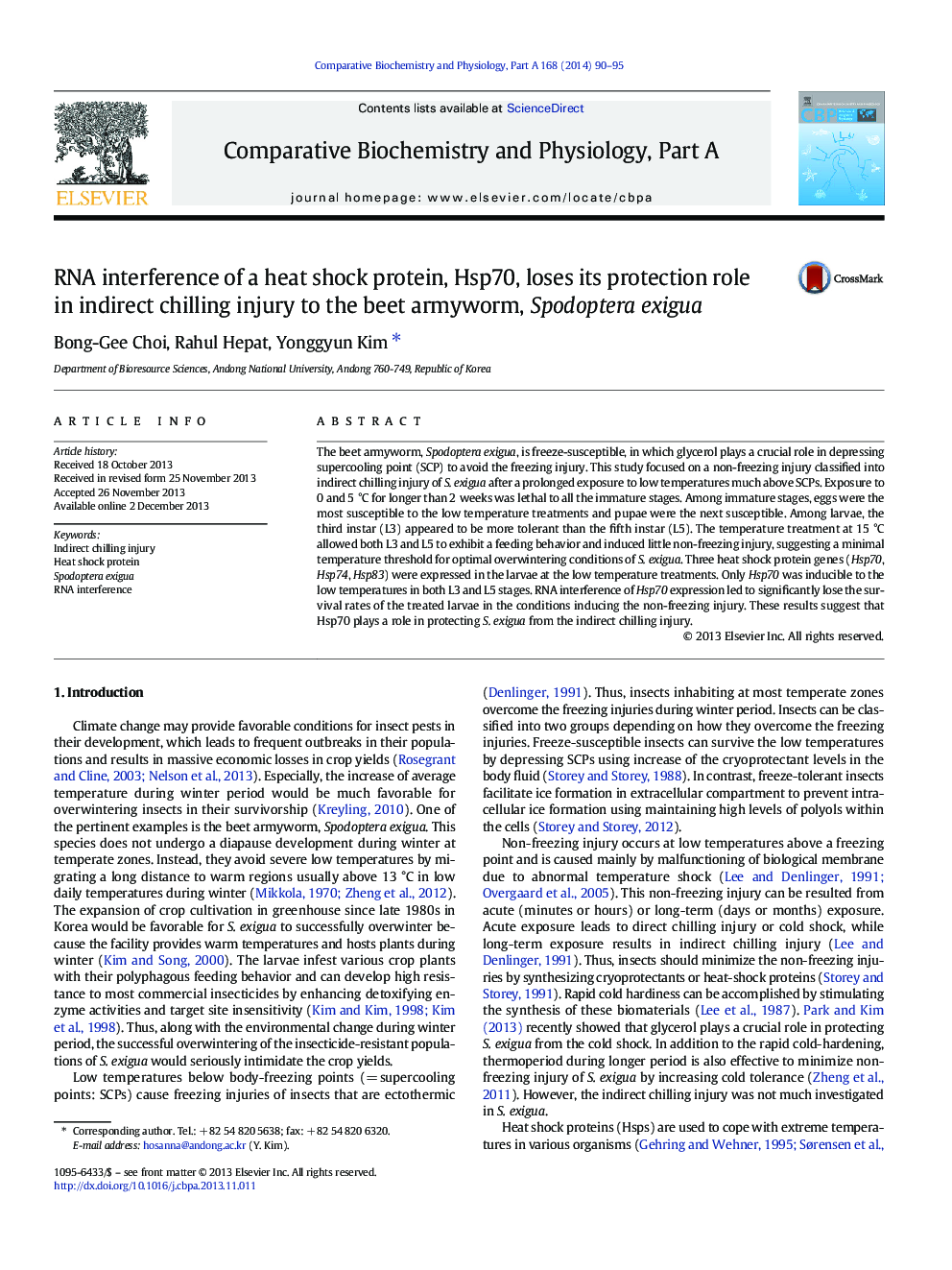| Article ID | Journal | Published Year | Pages | File Type |
|---|---|---|---|---|
| 1972266 | Comparative Biochemistry and Physiology Part A: Molecular & Integrative Physiology | 2014 | 6 Pages |
The beet armyworm, Spodoptera exigua, is freeze-susceptible, in which glycerol plays a crucial role in depressing supercooling point (SCP) to avoid the freezing injury. This study focused on a non-freezing injury classified into indirect chilling injury of S. exigua after a prolonged exposure to low temperatures much above SCPs. Exposure to 0 and 5 °C for longer than 2 weeks was lethal to all the immature stages. Among immature stages, eggs were the most susceptible to the low temperature treatments and pupae were the next susceptible. Among larvae, the third instar (L3) appeared to be more tolerant than the fifth instar (L5). The temperature treatment at 15 °C allowed both L3 and L5 to exhibit a feeding behavior and induced little non-freezing injury, suggesting a minimal temperature threshold for optimal overwintering conditions of S. exigua. Three heat shock protein genes (Hsp70, Hsp74, Hsp83) were expressed in the larvae at the low temperature treatments. Only Hsp70 was inducible to the low temperatures in both L3 and L5 stages. RNA interference of Hsp70 expression led to significantly lose the survival rates of the treated larvae in the conditions inducing the non-freezing injury. These results suggest that Hsp70 plays a role in protecting S. exigua from the indirect chilling injury.
